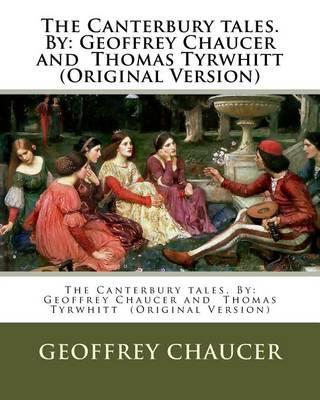Geoffrey Chaucer c. 1343 - 25 October 1400), known as the Father of English literature, is widely considered the greatest English poet of the Middle Ages and was the first poet to be buried in Poets' Corner of Westminster Abbey. While he achieved fame during his lifetime as an author, philosopher, and astronomer, composing a scientific treatise on the astrolabe for his ten-year-old son Lewis, Chaucer also maintained an active career in the civil service as a bureaucrat, courtier and diplomat. Among his many works are The Book of the Duchess, The House of Fame, The Legend of Good Women and Troilus and Criseyde. He is best known today for The Canterbury Tales. Chaucer's work was crucial in legitimizing the literary use of the Middle English vernacular at a time when the dominant literary languages in England were French and Latin Geoffrey Chaucer was born in London sometime around 1343, though the precise date and location of his birth remain unknown. His father and grandfather were both London vintners; several previous generations had been merchants in Ipswich. (His family name derives from the French chausseur, meaning "shoemaker".) In 1324 John Chaucer, Geoffrey's father, was kidnapped by an aunt in the hope of marrying the twelve-year-old boy to her daughter in an attempt to keep property in Ipswich. The aunt was imprisoned and the 250 fine levied suggests that the family was financially secure-bourgeois, if not elite.[3] John Chaucer married Agnes Copton, who, in 1349, inherited properties including 24 shops in London from her uncle, Hamo de Copton, who is described in a will dated 3 April 1354 and listed in the City Hustings Roll as "moneyer"; he was said to be moneyer at the Tower of London. In the City Hustings Roll 110, 5, Ric II, dated June 1380, Geoffrey Chaucer refers to himself as me Galfridum Chaucer, filium Johannis Chaucer, Vinetarii, Londonie










